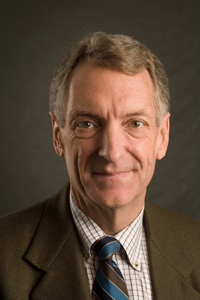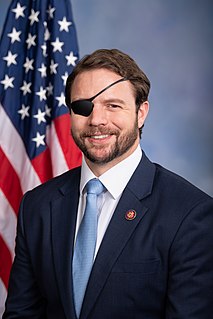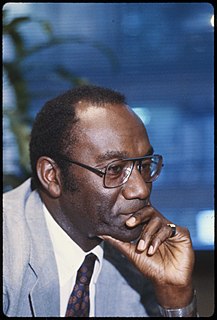A Quote by Price Pritchett
Who is this vague "they" we blame for so many of our problems? "They" is the obscure party we use as our whipping boy to camouflage the fact that we - you and I and other specific human beings just like us - have to start doing things differently. "They" can't fix anything. We can.
Related Quotes
Our actual lives, including our values, our social relations, our self-conceptions, and many of our concepts, are pervasively shaped both by the knowledge and by the fact that we will someday die - that we are subject to extreme temporal scarcity. There is no reason to think that, if we were immortal, the same things would continue to matter to us. We have little or no idea what, if anything, would matter to immortal beings, or even how such beings would think of themselves.
Americans, like human beings everywhere, believe many things that are obviously untrue, the monograph went on. Their most destructive untruth is that it is very easy for any American to make money. They will not acknowledge how in fact how hard money is to come by, and, therefore, those who have no money blame and blame and blame themselves.
I feel like human beings can't help but destroy, but if our numbers are small we don't destroy as much as we do when our numbers are this huge and out of control. I wonder, what's the carrying capacity for human beings? When do we get to the point when we can't take it anymore, when it becomes too unpleasant to us just to be here because there's too many of us and there's no solitude anymore.
In the past, destruction of your neighbour might have been considered a victory, but today we are all interdependent. We live in a global economy; we face problems like climate change that affect us all. The 7 billion human beings alive today belong to one human family. In the context that others' interests are in our interest and our interest is in their interest, the use of force is self-destructive.
It is easier to talk about doing things than doing them. Many of us want to exercise more, eat more healthy, be kinder to our loved ones, etc., but unless we have specific milestones about how to do this, our intentions do not match our actions. The HR milestones we lay out offer specific steps along the longer journey to HR transformation.
Learning what it is to be among other human beings includes learning that they can be different from us as well as similar. We imagine what it would be like to experience the world differently from their locations, nor our own. We might still use analogies to understand others, but analogies point to similarities that co-exist with differences. Similar in some respects is consistent with different in other respects.
Let us examine our attitude toward peace itself. Too many of us think it is impossible. Too many think it unreal. But that is a dangerous, defeatist belief. It leads to the conclusion that war is inevitable, that mankind is doomed, that we are gripped by forces we cannot control. We need not accept that view. Our problems are manmade; therefore they can be solved by man. And man can be as big as be wants. No problem of human destiny is beyond human beings.
Every generation has a changing of the guard in media. We do the same stuff that everybody else does, but we just do it differently. We do our content online differently. We do our magazines differently. We do our TV differently. We never had anyone tell us how to do magazines, so we just developed it in a different way.
Our nuclear free status is a statement of our belief that we and our fellow human beings can build the institutions which will one day allow us all to renounce the weapons of mass destruction. We are a small country and what we can do is limited. But in this as in every other great issue, we have to start somewhere.
I think we spend a lot of time denying our mothers. We understand other women earlier than we understand our mothers because we're trying so hard to say, "I'm not going to be like my mother" that we blame her for her condition. If we didn't blame her for her condition, we would have to admit that it could happen to us, too. I spent a long time doing that, thinking that my mother's problems were uniquely her fault.
When you plant lettuce, if it does not grow well, you don't blame the lettuce. You look for reasons it is not doing well. It may need fertilizer, or more water, or less sun. You never blame the lettuce. Yet if we have problems with our friends or family, we blame the other person. But if we know how to take care of them, they will grow well, like the lettuce. Blaming has no positive effect at all, nor does trying to persuade using reason and arguments. That is my experience. No blame, no reasoning, no argument, just understanding.



































